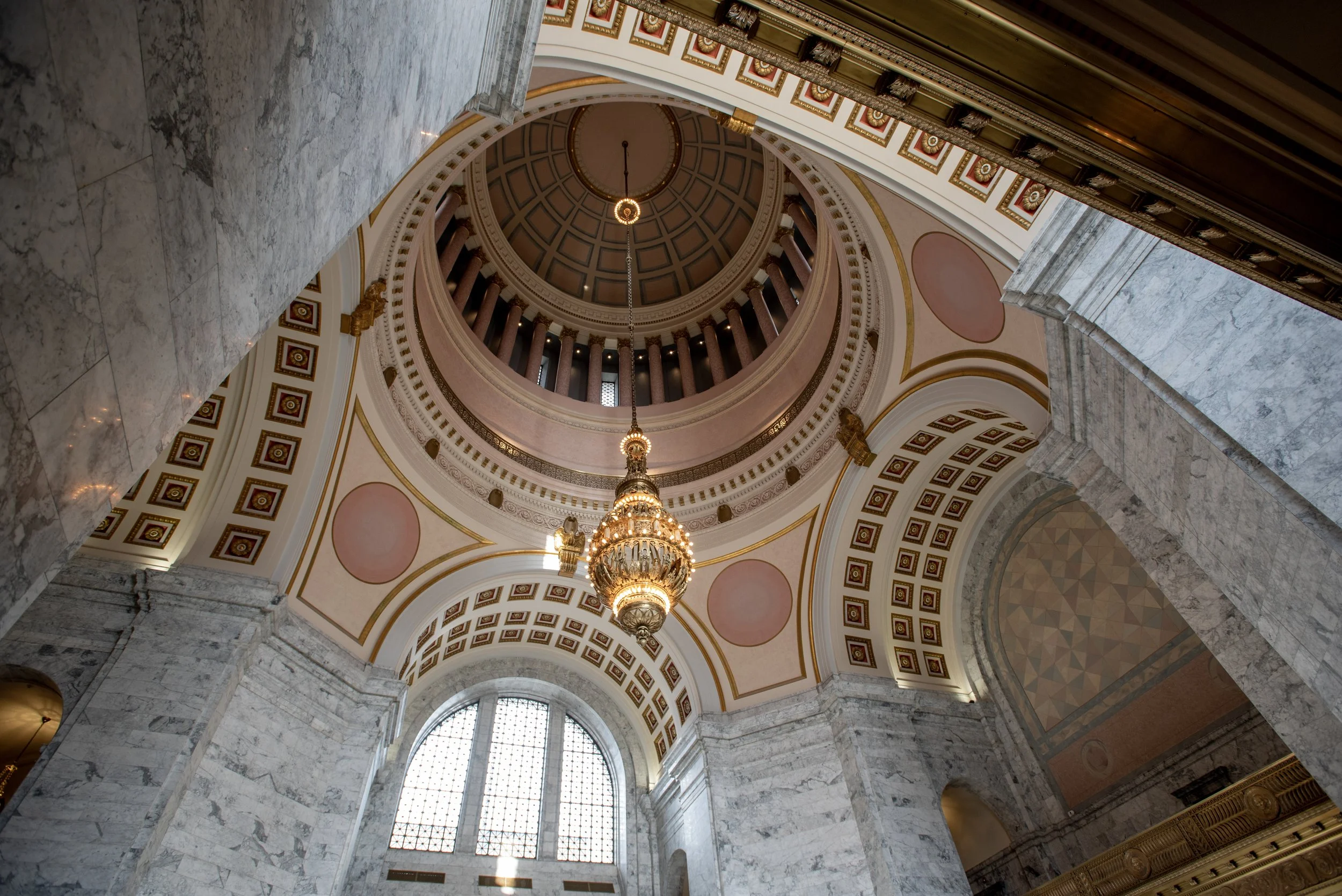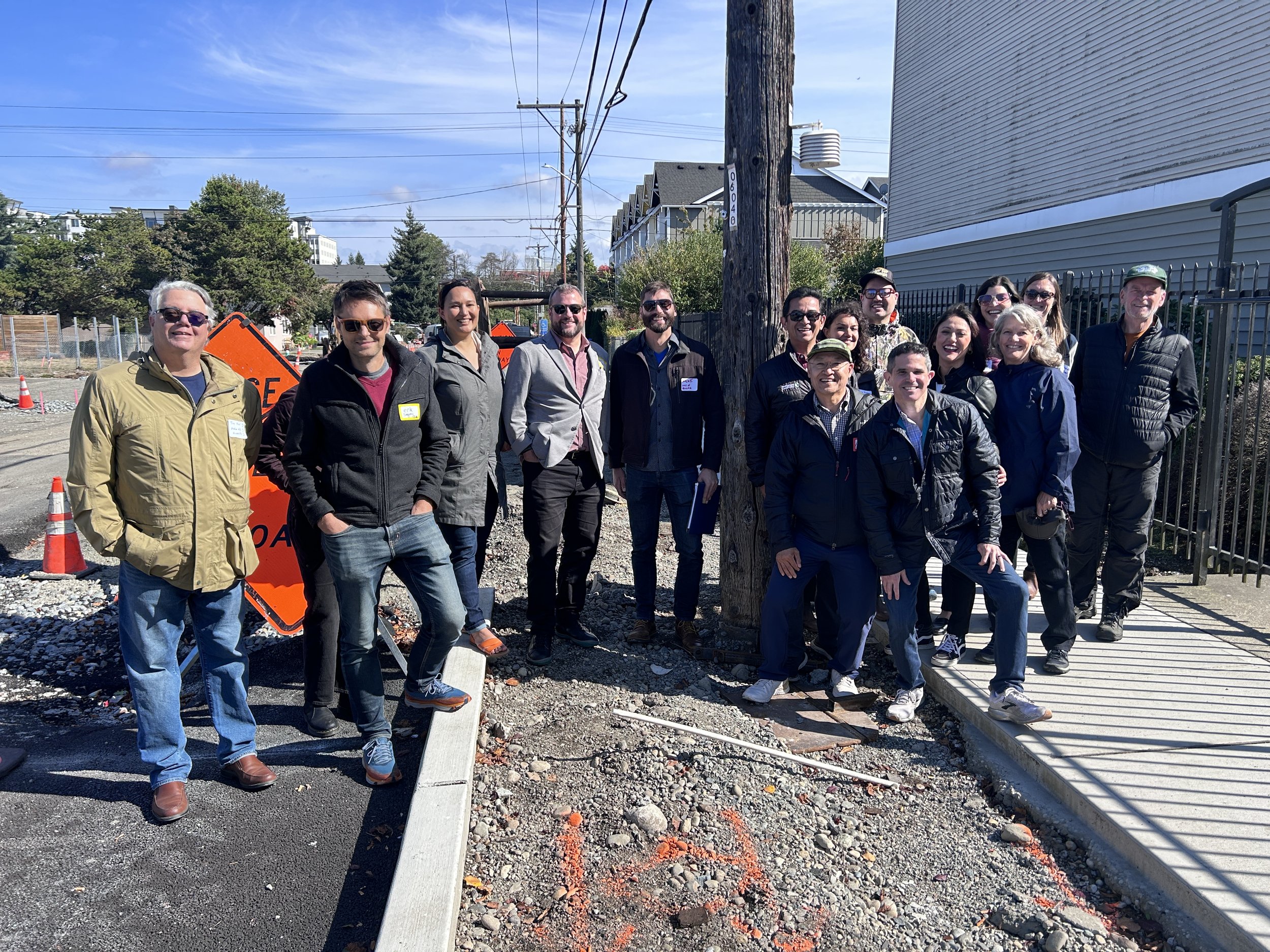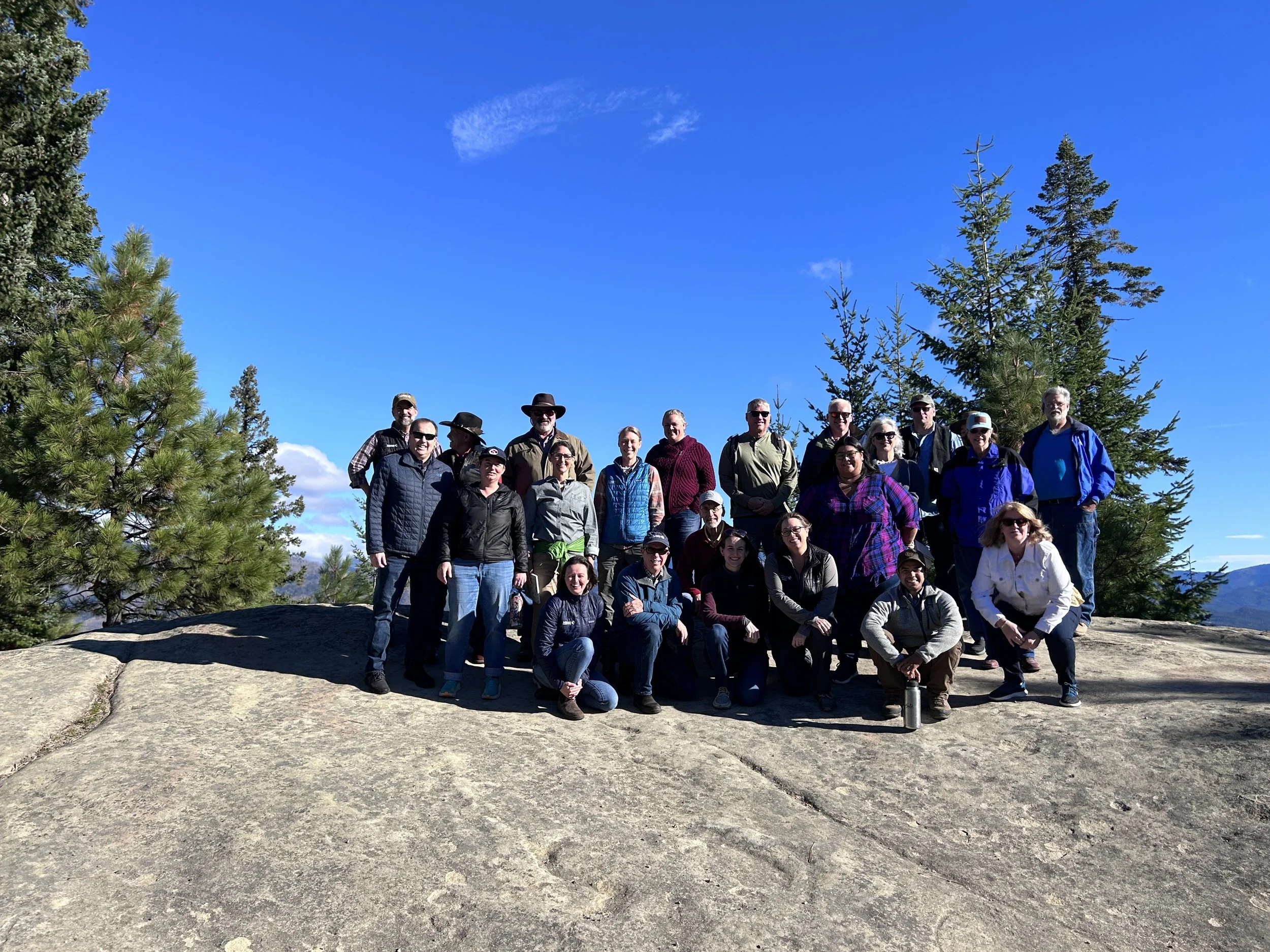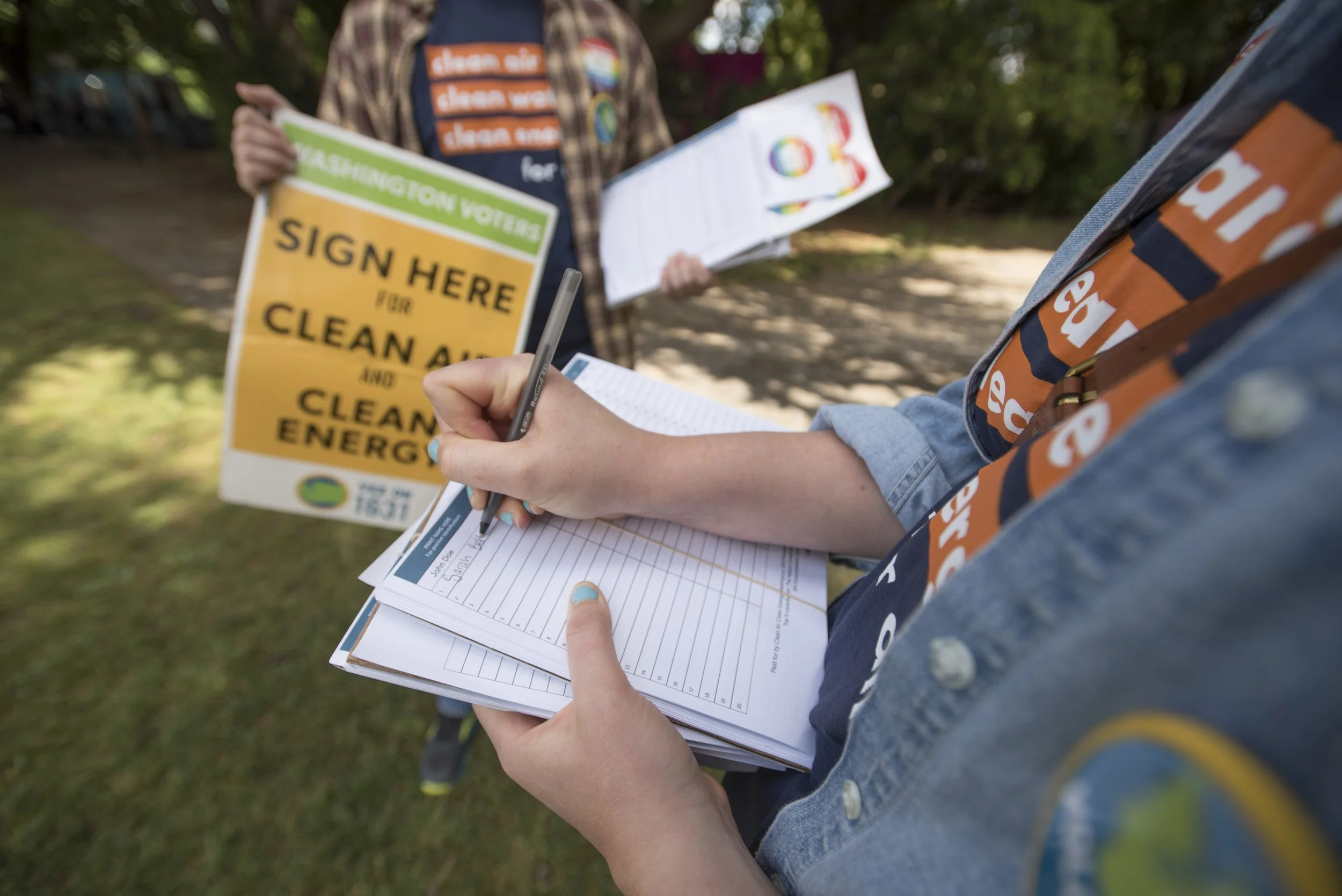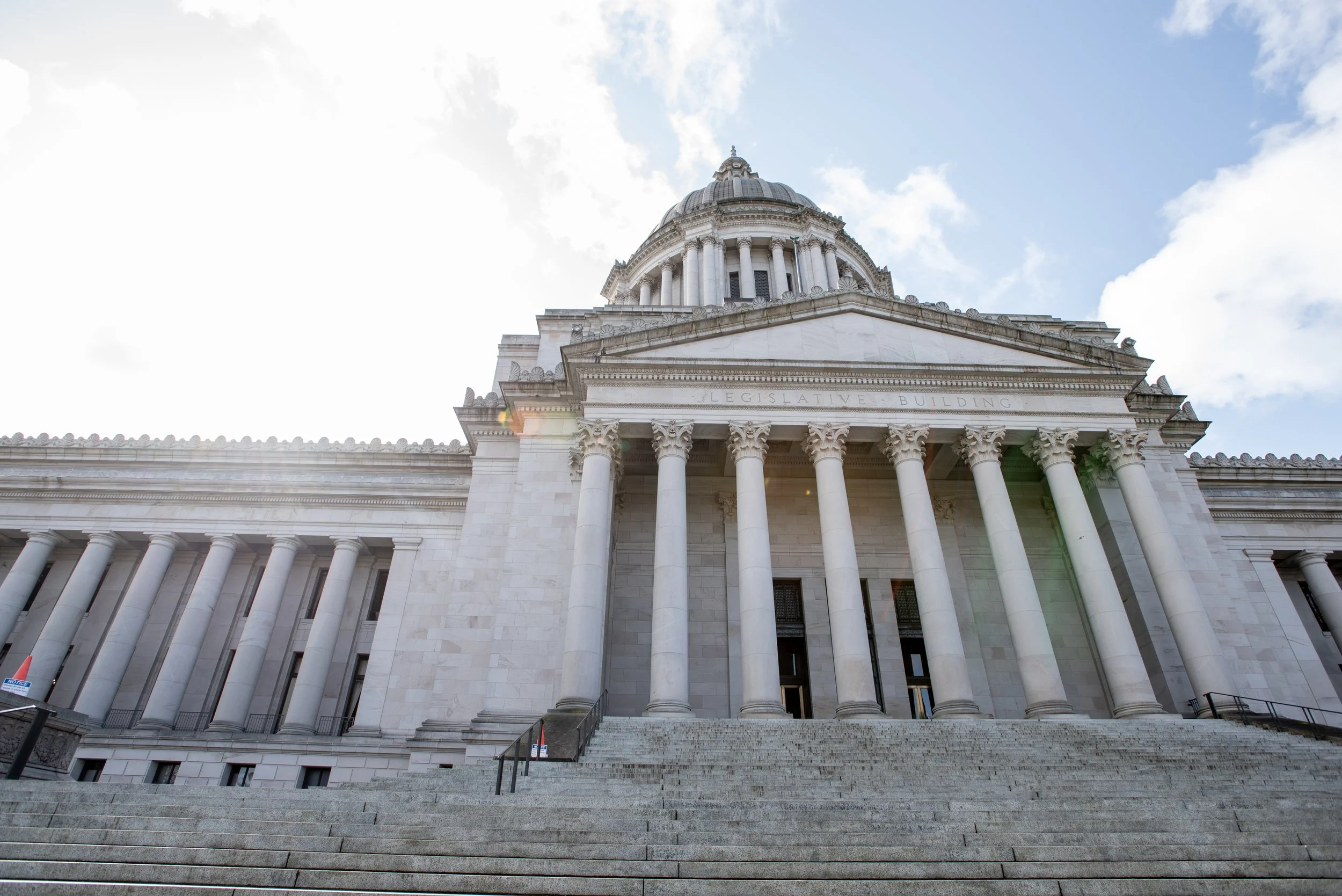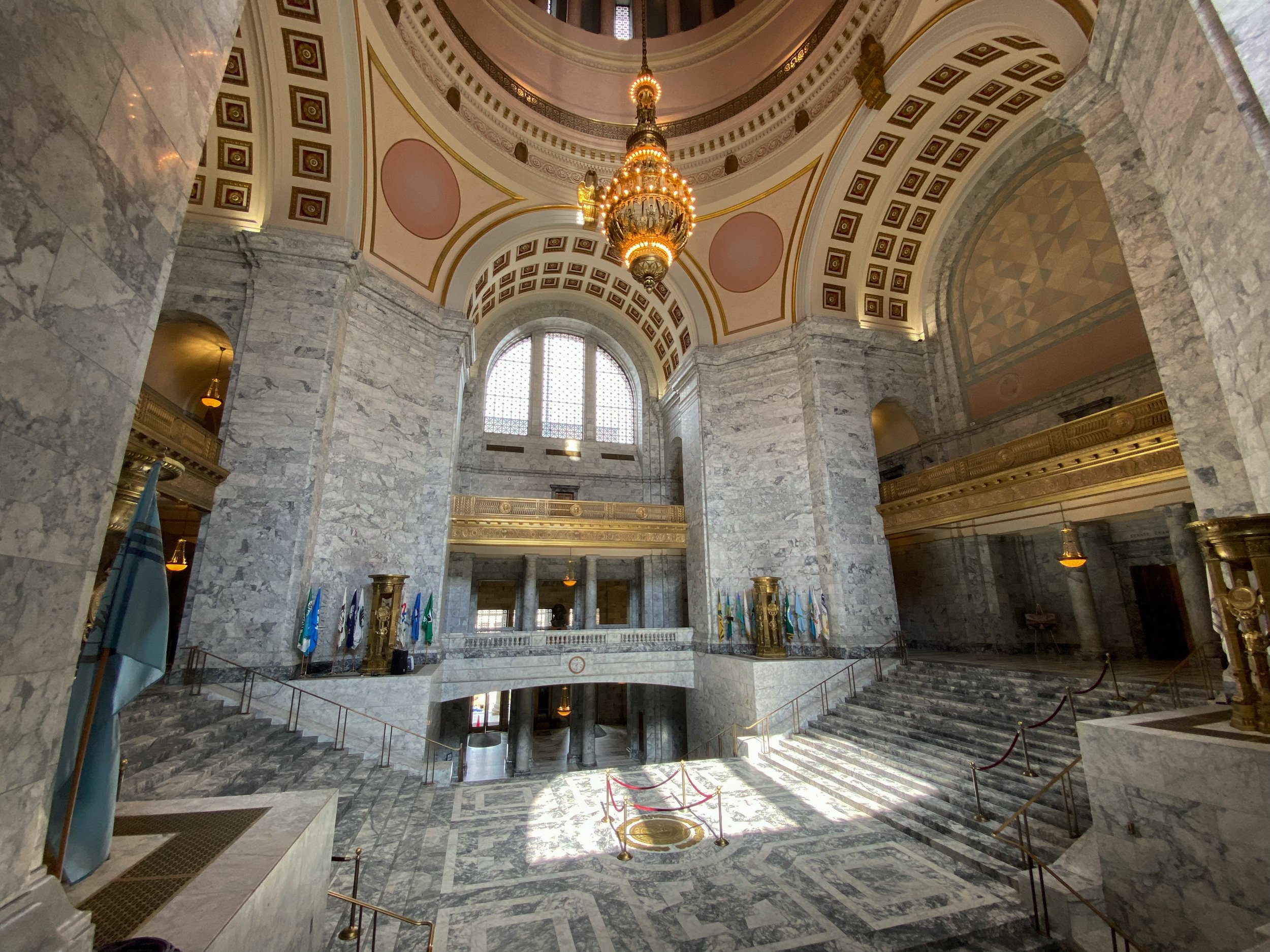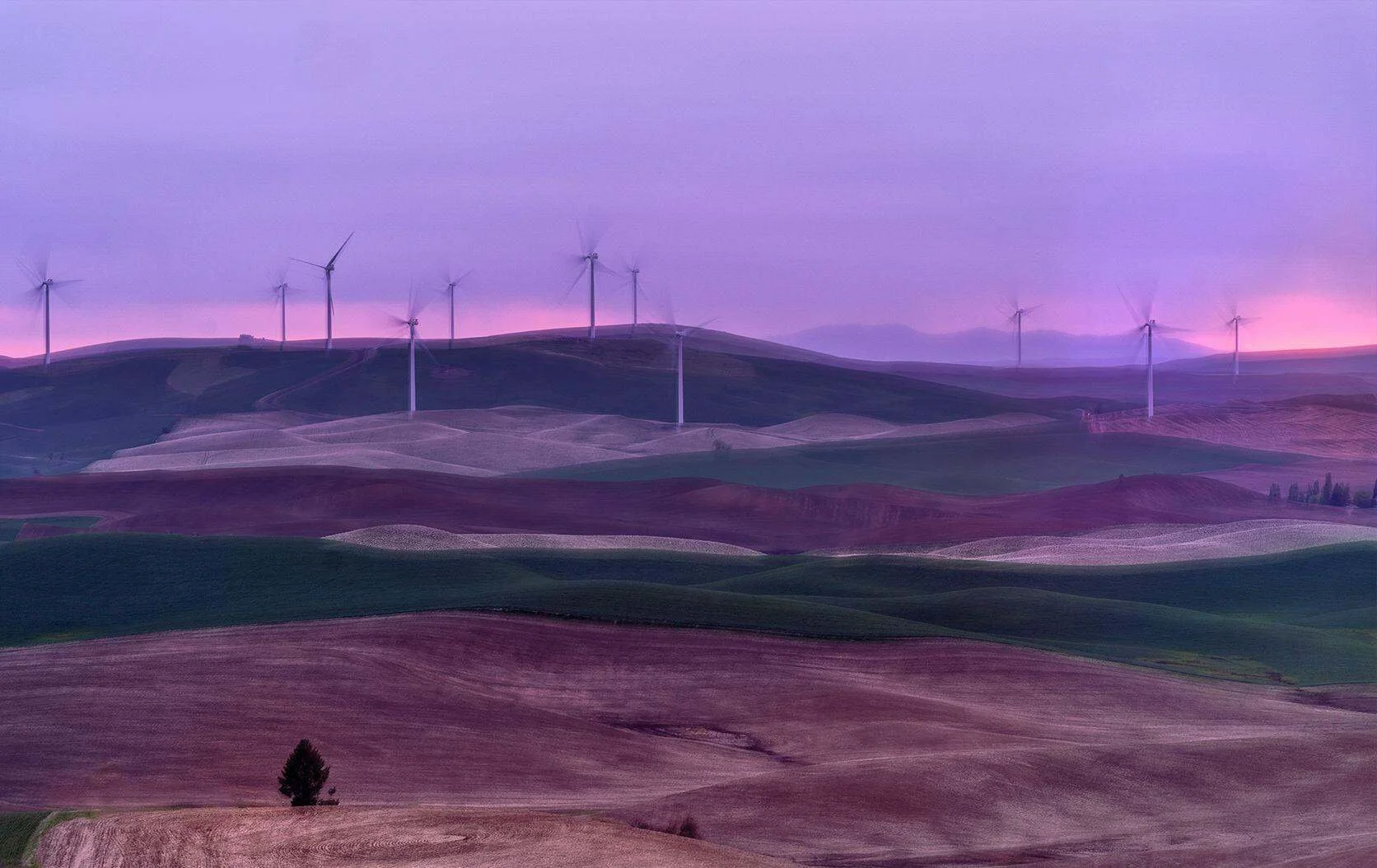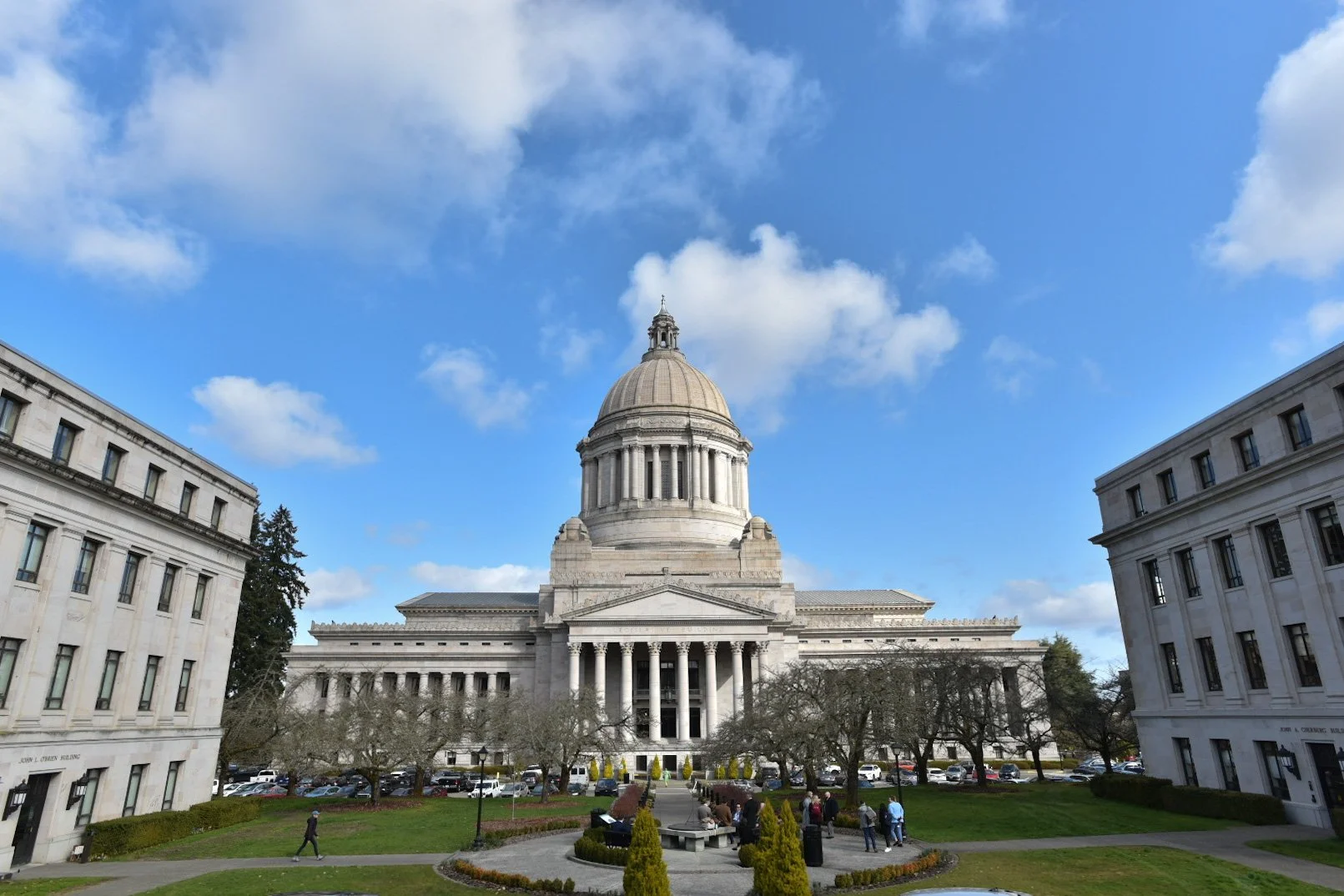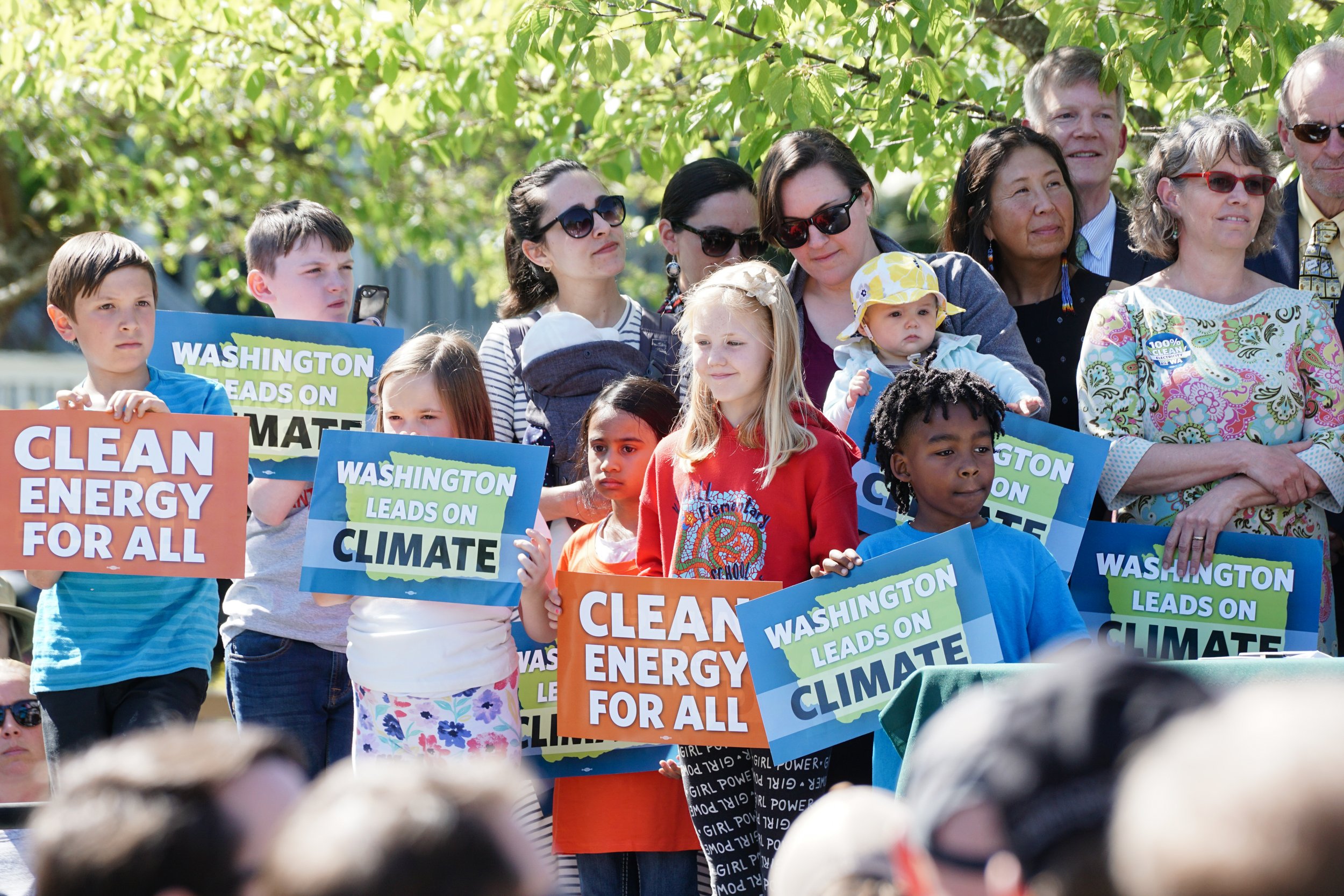We can have cleaner air, better and cheaper transportation options, and healthier communities right now — but we need your voice to make it happen!
The state Legislature is considering a Clean Fuel Standard for the third year in a row. This year’s bill, HB 1091, has passed the House of Representatives three times now, and it’s up to the Senate to deliver this critical climate policy this April.
Speak up for clean fuels today
It’s up to the Senate to pass HB 1091 — please take a moment to urge your senator to support this critical climate and health policy.
A Clean Fuel Standard is a foundational tool for facing the climate crisis, as it helps clean up our state’s transportation sector, which is responsible for nearly half of the carbon emissions in Washington. Making transportation fuels cleaner will literally help Washingtonians breathe easier: reducing the toxicity of dirty fuels will be easier on our lungs, especially for people living near freeways and ports, kids and adults with asthma and cardiovascular disease, and anyone with respiratory conditions.

The Clean Fuel Standard is a foundational climate policy. Photo from 2019 climate march in Seattle by Nikolaj Lasbo.
The Clean Fuel Standard requires oil companies and other fuel producers to clean up their products, encouraging higher efficiency refining, incentivizing the production of renewable biofuels and the use of electricity. It doesn’t mean everyone will need to rush out and buy an electric car, or even make any changes to the vehicles they already drive — even long-haul trucks and farm equipment can run on cleaner-burning biodiesel blended with fossil diesel without modifying their engines. But the program will invest in cleaner mass transit and in building the electrification infrastructure we’ll need as we transition to cleaner ways of getting around.
from fryers to fuels
Did you know that restaurants across Washington are already recycling their used cooking oil into renewable fuels? Learn more and explore whether your favorite takeout spot is part of the growing circular economy.
Our neighbors in California, Oregon and British Columbia all have Clean Fuel Standards in place, and they’re working — increasing the production of alternative fuels, which are cleaner and often cheaper than dirty fossil fuels, and are produced closer to home, making their economies less beholden to the fluctuations of the volatile global oil market. Washington state has a handful of biofuel refineries already, but most of the fuel they produce is shipped out-of-state to be used by our West Coast neighbors. A Clean Fuel Standard would help keep these fuels here at home, attract business investments in biofuels and electrification, employ more Washingtonians in the clean energy economy, and help fight climate change and improve our air quality.
We must pass HB 1091 this session - there’s no more time to delay. Please take a moment to urge your state senator to support Clean Fuels.
Thank you for speaking up for cleaner air and cleaner fuels — and for helping all of us breathe a little easier.
Banner photo: Restaurant owner Yuki Sodos speaks up for Clean Fuels now at an event in Seattle’s Chinatown-International District. Photo by Brittany Gallagher.
The Washington State Legislature wrapped up its 2024 session. We celebrate new investments in climate resilience and the clean energy transition, while reflecting on the complex dynamics of protecting our state’s Climate Commitment Act.
The 2024 state legislative session is underway! The Nature Conservancy’s highest priority for the 2024 legislative session is ensuring the success of the Climate Commitment Act (CCA). With revenue from the CCA cap-and-invest program, we have an opportunity this session to make big investments in Natural Climate Solutions, a just transition, Environmental Justice Council recommendations, and investments to attract federal climate funding.
Local elected officials and community leaders join TNC staff for a tour of the Greening Research in Tacoma (GRIT) project, to learn about opportunities to improve air quality and green infrastructure in communities overburdened by pollution.
State Legislators visit the Cle Elum Ridge to learn about about TNC’s forest health work, including prescribed fire, tree thinning, and tree mastication. State funds secured thanks to House Bill 1168 help to make wildfire resilience work possible.
Since 2016, The Nature Conservancy in Washington’s involvement in the climate advocacy space has progressively increased. Throughout this journey we’ve seen that partnerships and coalitions are one of the most powerful ways to achieve broad support for climate legislation.
The 2023 Legislative Session in Olympia saw some major achievements for nature and people: investments in improving air quality, natural climate solutions, curbing greenhouse gas emissions, and better long-term resiliency planning. A big thanks to our staff who dedicated their efforts to our priorities.
Trustee Lobby Day is a highlight every year here at The Nature Conservancy. It’s a wonderful reminder of the real reason for our advocacy and policy efforts- to strengthen the relationship between people and nature so that both can thrive.
Passing a budget is one of the most important roles the State Legislature plays, as it determines how policies will be implemented and reflects what we value as a state. Our team dug into the details to see how our priorities are faring so far.
Realizing our clean energy future means rapidly transitioning to a clean, affordable, reliable, and sufficiently expansive energy grid. With HB 1216, the Washington State Legislature has the opportunity to take an important step towards that this session.
The 2023 legislative session is half-way complete - let’s check in on our priority bills, and what’s left to come.
Nestled in the mountains of the Central Cascades, the Teanaway Community Forest (50,241 acres) has been a conservation gem intended as a refuge for people as much as nature. In the past ten years, transformative restoration efforts including wildfire prevention and stream restoration have created a healthier forest that benefits people, wildlife, and the lands. There’s more work to be done.
Thirty years ago, Washington passed the Growth Management Act (GMA)—legislation that has helped communities across the state plan ahead. In the face of a changing climate, it’s become clear that the GMA also needs to be updated for our new climate realities.
In addition to building on the progress of the last few years, the 2023 state legislative session presents a momentous opportunity to invest in nature and people with the 2023-25 biennial budget.
Washington’s landmark climate law takes effect on January 1 — and you can still help shape it!
Leaders from across the region came together at the Nisqually Cultural Center for Puget Sound Day on the Sound.
Speak up for cleaner air for all Washington’s communities by submitting a public comment to the Department of Ecology as they shape our new air quality program.
The Inflation Reduction Act is a big win for climate action. Here’s what it means for Washington.
The Inflation Reduction Act is on its way to President Biden’s desk, putting the U.S. on the path to reducing emissions by 40% by 2030.


